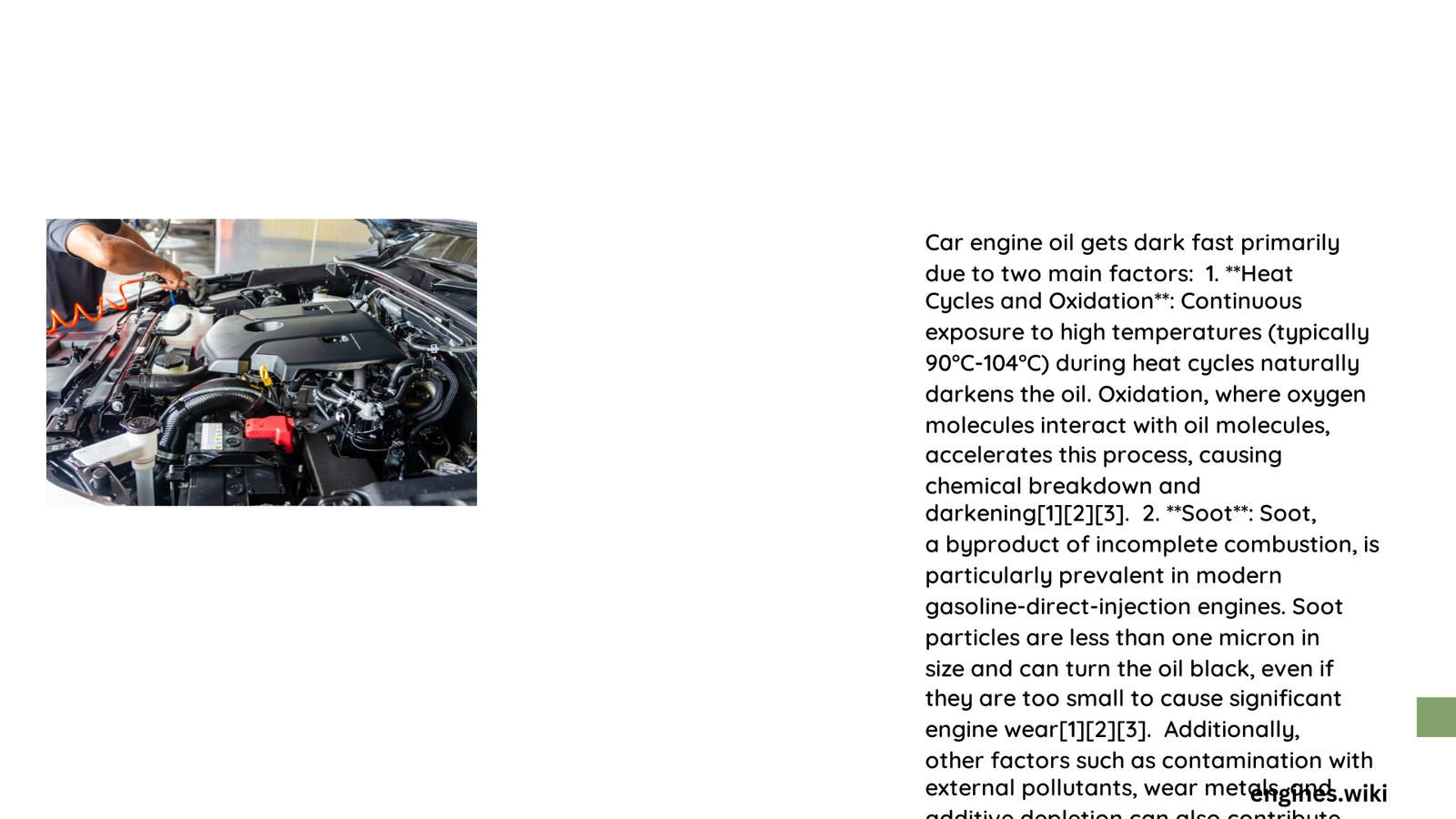Car engine oil darkening rapidly is a common concern for vehicle owners, signaling potential underlying issues with engine performance and maintenance. When fresh, golden-colored oil quickly turns black, it can indicate complex interactions between engine components, combustion processes, and lubricant chemistry. Understanding these mechanisms helps drivers protect their vehicle’s critical systems and prevent premature wear.
Why Does Car Engine Oil Get Dark Fast?
What Causes Rapid Oil Darkening?
Car engine oil darkens due to multiple interconnected factors:
- Heat Cycles and Thermal Breakdown
- Engine temperatures between 195°F–220°F accelerate oil degradation
- Repeated heating and cooling cycles break down oil molecular structures
-
Thermal stress causes chemical transformations in lubricant composition
-
Soot and Carbon Deposit Accumulation
- Incomplete combustion generates microscopic carbon particles
- Diesel and direct-injection engines produce more soot
- Particles smaller than one micron penetrate standard oil filters
| Soot Generation Source | Particle Size | Impact on Oil |
|---|---|---|
| Diesel Engines | < 1 micron | High darkening rate |
| Direct Injection | 0.5-2 microns | Moderate darkening |
| Traditional Gasoline | > 2 microns | Slower darkening |
How Quickly Can Oil Darken?
Depending on driving conditions, engine oil can darken within:
– 500-1,000 miles for severe driving environments
– 2,000-3,000 miles under normal conditions
– Potentially faster in turbocharged or high-performance engines
What Are the Implications of Dark Engine Oil?
Performance Consequences
- Reduced lubrication efficiency
- Potential increased friction
- Higher risk of accelerated engine wear
- Compromised heat dissipation capabilities
Strategies to Mitigate Rapid Oil Darkening
- Select High-Quality Synthetic Oils
- Better thermal stability
- Enhanced resistance to oxidation
-
Superior dispersant additives
-
Implement Regular Maintenance
- Follow manufacturer-recommended oil change intervals
- Use high-grade oil filters
- Monitor oil condition through periodic inspections
When Should You Change Darkened Oil?
Warning Signs Requiring Immediate Attention:
– Burnt smell
– Gritty texture when rubbed between fingers
– Significant color change within short mileage
– Visible contamination particles
Expert Recommendations

Professional mechanics suggest:
– Use synthetic oils with robust additive packages
– Consider shorter oil change intervals in challenging environments
– Invest in bypass filtration systems for enhanced protection
– Regularly inspect oil condition beyond color assessment
Technical Insights
Modern engine designs, particularly turbocharged and direct-injection systems, inherently produce more contaminants. This technological advancement necessitates more sophisticated lubrication strategies.
Conclusion
Understanding why car engine oil gets dark fast empowers vehicle owners to make informed maintenance decisions. Regular monitoring, quality lubricants, and proactive care are key to preserving engine longevity.
